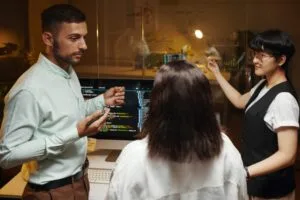As an entrepreneur, you have to be prepared for any situation your business may encounter. That’s why last week, we talked about franchise encroachment and how to protect yourself.
Now, if you are in the pharmaceutical industry, you must know that patents are critical in shaping global health outcomes. By granting exclusive rights to produce and sell new drugs for a fixed period, patents are designed to incentivize innovation and reward research and development investments.
However, this system also raises significant ethical, economic, and public health concerns, particularly in low–and middle–income countries, where high costs and restricted availability can severely limit access to life-saving medications. The tension between protecting intellectual property and ensuring equitable access to medicines lies at the heart of ongoing debates in global health policy.
In today’s article, we’ll explore the complex relationship between pharmaceutical patents and public health, examining how current patent laws influence drug prices, innovation trajectories, and the accessibility of essential treatments worldwide.
Table of Contents
ToggleWhat are pharmaceutical patents?
Pharmaceutical patents are a form of intellectual property protection granted to inventors of new drugs, allowing them exclusive rights to manufacture, use, and sell the product for a specific period, typically 20 years from the date of filing.
These patents are intended to reward innovation by providing a temporary monopoly that helps companies recoup the high costs associated with research, clinical trials, and regulatory approval.
In the pharmaceutical industry, where developing a single drug can take over a decade and cost billions of dollars, patents are seen as a vital mechanism to stimulate continued scientific advancement and investment.

Legal framework of pharmaceutical patents
The legal framework surrounding pharmaceutical patents is very complicated, mostly because it is shaped by international agreements, most notably the World Trade Organization (WTO). These agreements often require each member country to adopt minimum standards for protecting intellectual property, including pharmaceutical patents. That’s why you must be certain that your patent lawyer in Miami is updated to the international legal framework.
While the agreement includes certain flexibilities, such as compulsory licensing, which allows governments to authorize the production of a patented drug without the patent holder’s consent, these measures are often politically sensitive and legally complex to implement. As a result, many countries struggle to balance compliance with international obligations and the urgent need to provide affordable medicines to their populations.
Another critical aspect of pharmaceutical patents is the timing of protection and its implications for market exclusivity. Although patents are granted early in the development process, the effective period during which a drug can be sold without competition is often shorter, due to the time required for regulatory approval.
Companies may use strategies such as “evergreening”, which means obtaining additional patents for minor modifications to extend exclusivity, as a way to delay generic competition. This tactic, while legally permissible in many jurisdictions, raises ethical questions about the role of patents in serving public health goals versus protecting commercial interests.
Global and national policy responses
In response to the challenges posed by pharmaceutical patents, a range of global and national policy mechanisms have been developed to improve access to essential medicines while still honoring intellectual property rights.
At the global level, international organizations such as the World Health Organization (WHO) and World Trade Organization (WTO) have taken steps to support more equitable access to medicines.
For example, in the context of the COVID-19 pandemic, the debate around patent waivers gained renewed attention. The proposal to temporarily suspend certain intellectual property protections for vaccines and treatments underscored the urgent need for coordinated global responses during health crises, even though consensus on such measures remains elusive.
Another promising approach has been the creation of patent pools and collaborative licensing initiatives. The Medicines Patent Pool (MPP), for instance, negotiates with patent holders to voluntarily license their technologies to generic manufacturers, thereby enabling broader distribution of affordable medicines in low and middle income countries.
On the national level, countries have implemented various legislative and regulatory reforms aimed at balancing patent protection with public health needs. Some have introduced stricter standards for granting patents to prevent “evergreening” and promote earlier entry of generics into the market.
Others have invested in local pharmaceutical manufacturing to reduce reliance on imported drugs and improve supply chain resilience. These policies reflect an evolving understanding that safeguarding public health requires both legal tools and proactive health governance.

Rethinking the pharmaceutical patent system
As global health challenges grow increasingly complex, there is a pressing need to rethink how the pharmaceutical patent system can better serve public health goals. While patents are important for encouraging innovation, their current structure often prioritizes profit over accessibility. Balancing these interests requires a shift toward models that promote both the development of new treatments and equitable access to them.
One potential avenue is the promotion of alternative innovation models, such as public funding for drug research, prize systems for breakthroughs, or open-source pharmaceutical development. These approaches reduce dependency on market exclusivity as the primary incentive for innovation, allowing discoveries to be more freely shared and produced.
Now that you have learned more about pharmaceutical patents, don’t hesitate to contact us; we are experts on the matter. Also, if you have found this article interesting, share it on social media and stay tuned to our blog for more legal updates.



